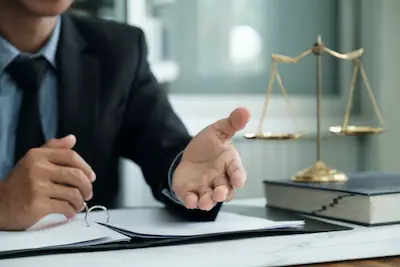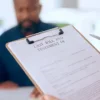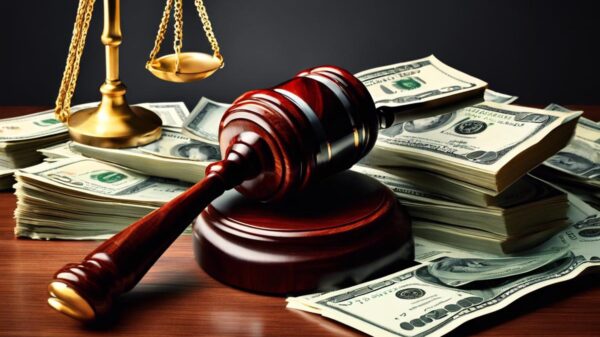Why Do Attorneys Object in Court?
If you have or have not been in a court setting, you know that attorneys have the right to object to statements and responses in court. Many people do not understand why attorneys do this or for what reason they do this. I have compiled some research since I am not an expert in the court for why your attorney objects in court.
S0, what does it mean when my attorney objects in court? An objection is when your attorney formally expresses their concern about something the other side is doing or asking for in court. When you object in court, you are telling the judge that there is a legal reason why what the other side is doing or asking for should not be allowed.
For example, say your lawyer asks the other side to tell him when they last saw you, but they have already testified that they have not seen you in at least ten years. Your attorney might object because a witness cannot be asked leading questions.
Keep reading to learn more about why your lawyer may object in court!
What Happens After An Attorney Objects?
If the objection is sustained, it means that what your attorney objected to is not allowed and will not happen. If the trial judge agrees with you that the other side’s question or behavior should not be allowed, then there is no reason for concern.
However, if your attorney objects and the judge does not agree with you, then your attorney and the judge will continue to discuss and debate what should or shouldn’t happen.
There are many different reasons why an objection might be made. Your lawyer may object if the other side is trying to attack you personally, make unfair comments, ask leading questions of a witness (a question containing its own answer), or communicate with you during the trial.
Reasons for An Objection in Court
An attorney will object in court for any number of reasons. A trial without objections would be quite chaotic. It would be hard for anyone to understand what was going on or follow the trial.
The main reason is the following: in a trial, especially when it comes to criminal proceedings, the court wants to make sure that all evidence and facts are presented correctly. Errors in the law may occur and therefore need to be corrected.
When an attorney objects, he or she tries to do just that: correct errors in the law. This is not done for personal reasons, but to protect and defend the rights and interests of their client.
This also has to do with the principle that every person accused of a crime is entitled to a fair trial. The court wants to be sure this principle holds in practice as well as on paper.
What Happens If An Attorney Objects On Wrong Grounds?
But isn’t it possible for lawyers to make a mistake? Yes, it’s possible. Sometimes an attorney may object on the wrong grounds or at the wrong time. This happens especially when attorneys are under pressure, they have to act fast or they can’t come up with their objection in time before the judge has already decided about something.
It is also very difficult for an attorney to stay 100% focused in a trial when he or she has no idea what the other attorneys are going to say. Members of the public can also make mistakes when they are listening carefully since it is often difficult for everyone to follow everything that happens during a trial at once.
When an attorney objects, know that this is done with one goal in mind: to protect the rights and interests of their client. After an objection is made, it becomes up to the judge whether or not they agree with the attorney’s objection.
If they do, then this affects what happens next during the trial. If they do not, then this does not affect anything. Now you know why attorneys are allowed to object in court. Whether or not they actually do depends on the context of each trial and their duty to defend and protect the rights and interests of their accused.
Types of Trial Objections
A lawyer may object to a witness’s testimony, an opposing party’s argument, or a judge’s ruling because it is improper under the law.
An objection must be clearly stated so that everyone involved – including the jury, defendant, and judge – knows the reason behind it. Legal professionals may be tempted to object for any reason. However, they must take care that their objections are well-founded. Otherwise, they risk giving the opposition ammunition to use against them.
Attorneys who regularly handle cases in which objections are expected should familiarize themselves with court rules and procedures.
Legal Professionals’ Ethical Responsibility to Object
When attorneys object in court, they are ethically obligated to do so only if the objection is well-founded or in good faith. The American Bar Association’s Model Rules of Professional Conduct state that attorneys must be ready to withdraw an objection “if the judge sustains an objection… when it is warranted“.
These rules extend to objections made outside of court but related to a client’s matter before the court. Attorneys who violate these rules may be disciplined by state bar associations and, in egregious cases, face disbarment.
Trial Objections vs. Preliminary Objections
An objection made during trial is known as a “trial objection.” Trial objections differ from those that may be made during preliminary hearings.
Preliminary objections are made before the trial to prevent the matter from going before a jury. This is done at the judge’s discretion. Their purpose is not to keep information out of the record, but rather to ensure that evidence and testimony are permissible under court rules and procedures.
In addition to the type of objection – i.e., trial vs. preliminary – attorneys must also make a distinction between “sustained” and “overruled” objections. If an objection is sustained, it means that the court agrees with the attorney’s assessment that the court rule or procedure being questioned was not followed correctly.
An overruled objection means that the judge did not agree with the position taken by the attorney. When a court sustains an objection, the jury is instructed to disregard any testimony or evidence that caused the objection.
Sustained Objections vs. Overruled Objections
In some cases, an attorney may have a valid reason to object but be overruled by the judge. In such cases, if an attorney wishes to preserve his objection for appeal purposes, he must ask the court’s permission to reiterate it.
This is referred to as “preserving the record” and ensures that any issues on which a decision was not made can be factored into future proceedings.
Expanding Objections
If an attorney believes the judge’s ruling may not accurately reflect his real objection, he can ask for clarification. If the court agrees, it will expand its original answer to include all of the attorney’s concerns.
A party cannot expand their original objection; this is known as a “second” or “successive” objection and is generally not allowed.
Standards for Jurors
If an attorney feels that the jury may misunderstand his objection or be influenced by it, he may ask that they be instructed to ignore it. When this happens, the judge will typically instruct the attorneys on both sides to rephrase their arguments in a way that would prevent further confusion.
Once the attorneys have adjusted their arguments, the judge will instruct jurors to disregard any objectionable remarks.
Motion to Object
The most common example of this would involve the defense attorney filing a motion to object when the prosecution attempts to introduce prior convictions or crimes that did not result in a conviction. The defense attorney’s reason for wanting these records excluded is that it is prejudicial and not probative to the case.
The motive for this motion is that the jury will be more inclined to find guilt if they have a biased view of the defendant as a person who has committed crimes in the past. This would lead them away from their duty to weigh all of the evidence presented during the trial.
How to Choose an Attorney
Before you reach trial, you must find a reputable attorney. Here are some of our tips for choosing an attorney in your area:
- Search for attorneys with positive reviews. If you are not sure where to look, try researching them online or asking people you know for referrals.
- Consider asking your family and friends for referrals as well. If you know people who had a legal issue, ask them if they were satisfied with the attorney that handled their case. Do not forget to include those individuals who are already working in law firms and related fields.
- If you think you can no longer afford to pay for legal services, you might be eligible for a public defender. Apply and see if you meet certain requirements such as incarceration or low income. You can find out more by searching online for “lawyer assistance programs” plus your location.
- You must hire someone you can trust and rely on. Make sure that you are comfortable with the attorney that you hire. You should be able to discuss any of your concerns or questions with your attorney.
- Browse through the profiles of different attorneys. This will give you an idea of what they can offer, their work experience, languages are spoken, education background, and client reviews. For example, how long have they been practicing law?
- Get a list of fees. This should be included in the package that they will be offering. Remember that it is important to hire a lawyer who can answer your questions promptly and precisely.













